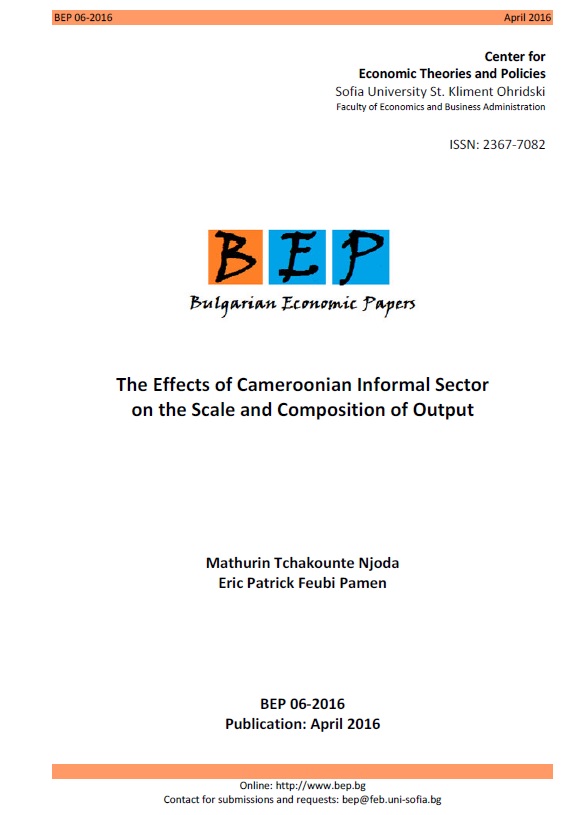The Effects of Cameroonian Informal Sector on the Scale and Composition of Output
The Effects of Cameroonian Informal Sector on the Scale and Composition of Output
Author(s): Mathurin Tchakounte Njoda, Eric Patrick Feubi PamenSubject(s): Economy, National Economy, Socio-Economic Research
Published by: Софийски университет »Св. Климент Охридски«
Keywords: informal sector; labour supply; demand; product diversity
Summary/Abstract: This paper studies potential economic effect of the informal sector, stemming from two factors: first, that informal workers, rural migrants, bring not only their labour supply with them, but also their consumption demands. Second, that informal workers may have a comparative advantage in the production of local goods. The paper then provides some descriptive statistics on the Informal workers share in the Cameroonian labour force, by industry, region, as well as on their branches distribution. Using data on a sample of microenterprises located in Douala and Yaounde between 2001 and 2010 matched with Rural and Urban Youth Support Program (RUYSP) and the National Employment Fund (NEF) data, the paper find some evidence that rural workers inflows boost employment in the retail sector, which is non-traded and a non-intensive user of informal labour. The paper also find that informalisation is associated with greater stand-alone retail stores, and a fewer number of large and in particular big-box retailers – evidence that likely corroborate a diversityenhancing effect of informalisation. Finally, focusing more sharply on the agricultural sector, for which we can better identify the types of products consumed by customers, the authors indicate that informalisation is associated with increased product diversity of agricultural sellers.
Journal: Bulgarian Economic Papers
- Issue Year: 2016
- Issue No: 6
- Page Range: 2-32
- Page Count: 31
- Language: English

